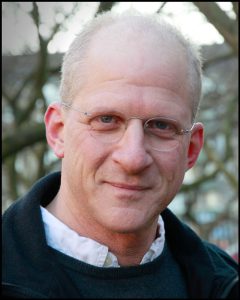
Charlie Marcus, Professor of Materials Science & Engineering and Physics
Monday, Oct. 23 at 3:30 p.m. in room 220 of Guggenheim Hall
Abstract:
Technological and cultural epochs are often named for the materials advances that precipitated them (iron, bronze). By that custom, the information age could well be called the silicon age (Why silicon?). What material will name the 21st century? Silicon again, tracking progress in AI? Carbon (graphene, or biology)? Tungsten (one example of a layered material)? Or aluminum, the material of choice, so far, for superconducting qubits (Why?). This talk will examine hybrid superconductor-semiconductor materials and voltage controlled superconducting qubits in this broader context.
Bio:
Dr. Charles Marcus received his Ph.D. in Physics from Harvard in 1990 and was an IBM postdoctoral fellow at Harvard from 1990-92. He then served on the Physics faculty at Stanford (1992-2000) and Harvard (2000-2011) where he also was Director of the Harvard Center for Nanoscale Systems (2006-2011). Marcus joined the Niels Bohr Institute (NBI), University of Copenhagen, in Denmark in 2012 as Villum Kann Rasmussen Professor, sponsored by the Villum Foundation, serving as Director of the Center for Quantum Devices a Center of Excellence sponsored by the Danish National Research Foundation. From 2016-21 he was also Scientific Director of Microsoft Quantum Lab–Copenhagen. In April 2023, Marcus joined the University of Washington faculty in Materials Science and Engineering in the College of Engineering, and in Physics in the College of Arts and Sciences, as the Boeing Johnson Endowed Chair.
Marcus is a Fellow of the American Physical Society and the American Association for the Advancement of Science, a member of the US National Academy of Sciences and foreign member of the Danish Royal Academy of Science and Letters. In 1999 he was awarded the Industry Prize by the Danish Academy of Natural Sciences, and in 2020 was the first non-Dane to receive the H.C. Ørsted Gold Medal, by the Society for the Dissemination of Natural Science, awarded only 20 times since 1909, including to Niels Bohr in 1924.